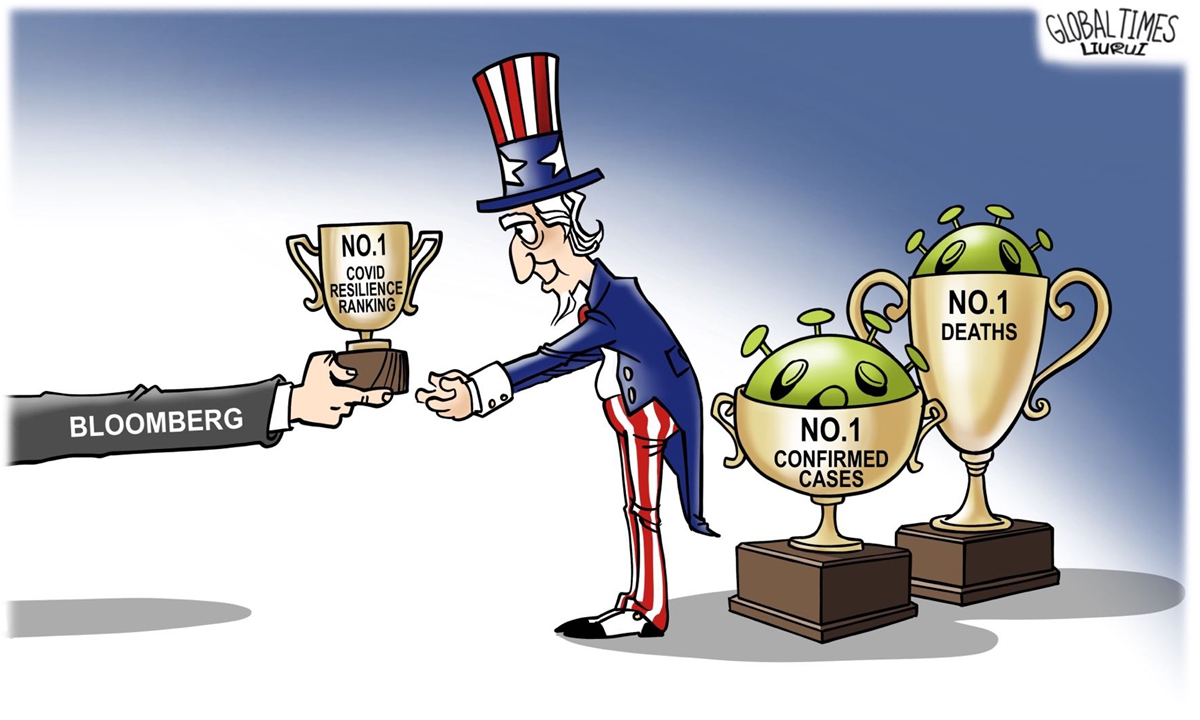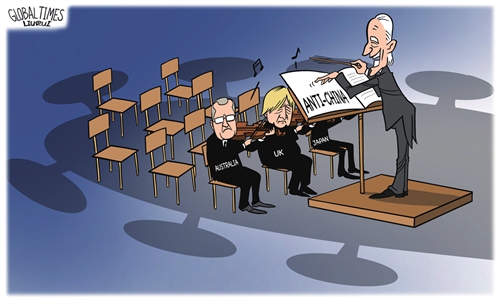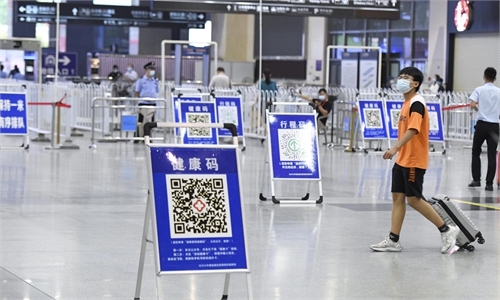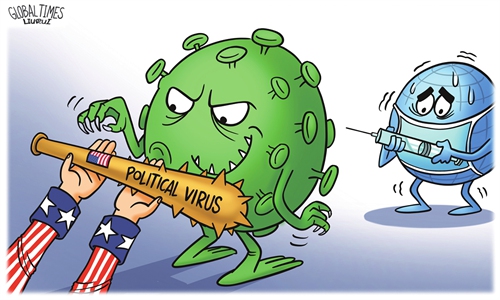
Illustration: Liu Rui/GT
About 200,000 people protested in Paris and other French cities on Saturday against the government's mandatory coronavirus health pass for entry into a wide array of public venues. Similar protests also took place in other European countries.A new wave of COVID-19 infections is sweeping across the world. Some optimistic people believe that it will end with the vaccines and the world will soon recover from the pandemic. Yet some are pessimistic and believe that the crisis is a watershed moment. The world has changed completely and is entering uncharted waters full of horror stories and suspense. Others are at a loss, thinking that the world under the disease is either real or imaginary. In any case, the impact of the uncertainty of the pandemic on world politics will certainly be complex and enduring. Is there really a post-pandemic era? If so, how far away is it? Is the world moving forward or backward? Will the international community become more inclusive or more divided?
It is hard to get relieved when tracking the curves of global pandemic. Health experts have warned that the epidemic in the US is "spiraling out of control again." European countries such as Britain, France, Germany and Italy have also seen a severe rebound.
Vaccines are the most powerful weapon against the pandemic. But there is a huge deficit between supply and demand. The global "vaccine inequality" has increased, with huge differences in vaccination rates between developed and developing countries. Many poorer countries are still scrambling to secure doses. Certain selfish and hypocritical developed Western countries look coldly from the sidelines at people of developing countries fighting the deadly disease. They are also hoarding a large number of vaccines. They even stigmatize some countries' aid efforts as "vaccine diplomacy."
As a result, the immunization gap widens and the world becomes more unequal. After the realization of "herd immunity," developed countries (such as the US and Europe) will begin to open up and restart their economies. However, the majority of developing countries are seriously lagging behind in vaccination rates. They face difficulties resuming normal operations in terms of social life and economic production. The gap between the rich and poor countries around the world will further widen. This means that some countries may face risks of political instability.
In the face of major crises in the past such as the 9/11 attacks, the financial crisis and the Ebola epidemic, the international community strengthened cooperation to overcome difficulties. This showed that international cooperation is the best way to deal with crises. However, the COVID-19 pandemic has left deep scars on international relations because Washington has been attempting to convert the war between humanity and the virus into a geopolitical competition between major powers by stigmatizing and politicizing the origins tracing of the virus.
With a widening gap between the rich and poor and the intensified racial conflicts, the US has witnessed growing social chaos. Failure to contain the virus has made it imperative for Washington to find a scapegoat to shift attention from such domestic problems. Besides, Washington is obsessed with coercive diplomacy to mislead people. In fact, Washington's selfish and willful acts have greatly undermined the global fight against the pandemic. The North American country has not only been hit hardest by the pandemic, but also become the birthplace of the "political virus." Its bigoted actions will neither defeat the virus nor save America. Instead, it will only tear the international community apart.
The world is at a critical moment of development. Globalization has brought the destiny of humanity together. All countries should join hands to safeguard the global public health security.
The pandemic has outlined the need for international society to review the true connotations of "human rights" and "freedom." For a long time, Washington has monopolized the rights to define what "human rights" and "freedom" are. This has been used as a tool to suppress others and interfere in other countries' domestic affairs. But most ironically, the US, which has been trumpeting "human rights" and "freedom" most loudly, is precisely the country hit hardest by the virus. It has witnessed the highest numbers of infections and death tolls.
By contrast, China has prioritized all of its people and their lives. It has taken actions to honor its commitment of making vaccines a kind of global public good. In front of raging pandemic, it's of more realistic and progressive significance to promote the building of a community with a shared future for humannity. Facing the test posed by the pandemic, human beings need to make the right choice.
The author is research fellow and executive vice president of the China Institute of International Studies. opinion@globaltimes.com.cn



